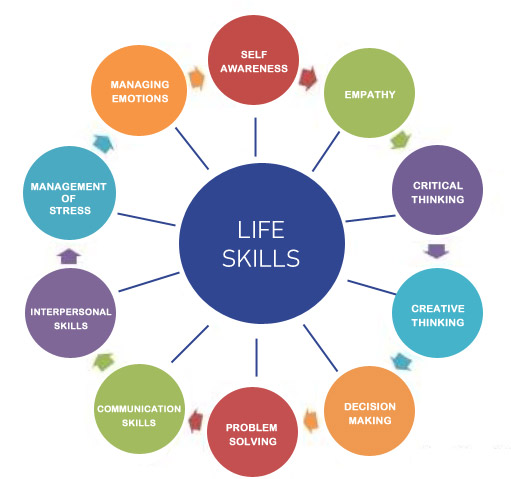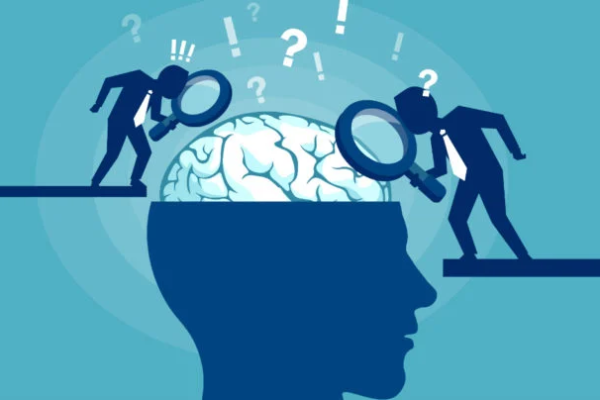Life skill education is an essential form of education that nurtures personal life skills such as critical thinking, self-reflection, interpersonal, and problem-solving skills. In the beginning, this skill was mainly focusing on making better health choices. However, in the present time, this skill aims at the overall development of the children. Also, it helps them to develop a better outlook towards life. The gradual development of life skill education included effective learning tools for survival, capacity enhancement, and quality of life. If you want to learn more about life skill education, then reading this post until the end can help.
Table of Contents
What Is Life Skill Education?
Life skills are described as the abilities that allow people to engage in adaptive and constructive behavior, allowing them to deal with the events and challenges of daily life. Besides, it can also help your kids to participate in a modern world full of new challenges, and manage anything from interpersonal relationships to recognizing and expressing emotions. This is done by promoting positive personal behaviors, social adaptation, citizenship, and positive attitudes at work.
Life skill education can also be defined as the set of personal skills and social features that the individual needs to interact confidently and efficiently with themselves or with other people and with the local community and to have a high ability to make important decisions in his life, solve problems at all levels of personal, social, sexual and self-development, to deal with others positively, and avoid falling into crises, and overcome them when they occur.
Importance of Life Skill Education
The value of getting life skills in one’s life lies in one’s ability to adapt to any situation and excel in society’s revival and prosperity. The lack of life skills for the young generation is one of the most pressing issues that require immediate attention and solutions these days. This is because there is a lack of life skills in the output of educational institutions. As a result, many fail in their careers and personal lives due to the absence of these skills they must have.
Life skill education helps students build confidence in both communication and cooperative and collaborative skills, provides them with tools important for development, finds new ways of thinking and problem-solving, and provides methods on how to socialize, make new friends and recognize the impact of their actions and behaviors. Life skills also help students take action in situations where their parents or teachers may not be available and make themselves take responsibility for what they do instead of blaming others.
Different Forms Of Life Skill Education
Below is the list of the main types of life skill education:
1: Focus and Self-Control
Schedules, behaviors, and routines are beneficial to children. They can provide a sense of stability while teaching kids self-control and concentration. Discuss what to expect each day with your kids. Organize your house so that your child knows where to place his or her shoes, jackets, and other personal items. We live in a noisy, distractible world, so peaceful activities like reading a book, participating in sensory activities, or working on a puzzle with your child will help them calm down and concentrate.
2: Interpersonal Relationship Skills
Interpersonal skills, also known as communications skills, social skills, or social competence, are the life skills that enable a person to connect and communicate with others on a daily basis, both individually and in groups. This ability is defined by the fact that it can be mastered by anyone, regardless of their educational background or personality differences. Self-confidence, active listening, critical thinking, organizational skills, teamwork, and delegation are examples of interpersonal skills.
Some important tips to improve your interpersonal skills include:
- Start your day with optimism. You choose to be happy or unhappy, as this is a personal choice.
- Persuade your conscience that today is going to be better than yesterday. Yesterday is gone, and tomorrow is still ahead of us. You must occupy your thoughts during the day and effectively communicate this idea to those around you.
- Get to know the words that a person should speak. No matter how poor a person’s mood is, this is delightful and improves good ties and kindness.
- Accept the traits and qualities that others possess and refrain from criticizing or complaining about what comes out of them.
- Avoid criticism as far as possible.
3: Communication
Every day, children need high-touch personal experiences in order to develop healthy social-emotional skills. These skills may include the ability to comprehend and connect with others.
Children must learn to “interpret” social cues and listen carefully, regardless of how quickly they acquire these skills. They must understand what they want to say and how to say it most effectively. Simply conversing with an involved adult will aid in the development of these abilities. Every day, devote uninterrupted time to listening to and reacting to your kid.
4: Making Connections
According to Galinsky, true learning happens when we can see similarities and patterns between seemingly unrelated events. The more associations we make, the more sense and meaning we will derive from our surroundings.
When they sort simple household objects like toys and socks, young children begin to notice similarities and patterns. Simple gestures, such as dressing appropriately for the season, assist them in forming bonds. Make more abstract associations in your life or in stories you read. For instance, “This children book reminds me of when we went to the beach to collect seashells.”
5: Critical Thinking
We live in a dynamic environment where adults are constantly forced to interpret data and make decisions about a variety of issues. Rich, open-ended play is one of the best ways to develop critical thought. Ensure that your child has time to play alone or with friends each day. Playing pretend (as firefighters or superheroes), building buildings, playing board games, or playing outdoor physical games like tag or hide-and-seek are all examples of this type of play. Children develop logical thinking skills by forming hypotheses, taking chances, trying out their ideas, making errors, and finding solutions via play.
6: Decision-Making Skills
Decision-making abilities are described as an individual’s ability to recognize and pass a clear judgment on a situation to which he has been exposed, as well as choose alternatives based on principles, beliefs, and preferences after studying the various options available to him. Every decision-making process leads to a final decision that may or may not indicate intervention.
- Decision-making skills aid in the development of problem-solving skills. It can help them control inner sensations, emotions, attitudes, and actions.
- Making the right decision is a personal achievement. It is the result of continuous thoughts enabling an individual to make decisions.
- Regardless of how serious the problems are or how intense the external effect is, do not be affected by external influences when making a decision.
- The inner feeling must be one of optimism and confidence in the possibility of achieving the set objectives.
- A person’s decision-making must be straightforward, and he must know what he wants; otherwise, he will not achieve his goals.
7: Self-Directed, Engaged learning
A kid who enjoys learning grows up to be an adult who is always enthusiastic. Limit television viewing and promote lots of reading, play, and open-ended experimentation to foster a love of learning. Visit the library together, keep art supplies on hand, and play games. Besides, allow for some messes at home to model excitement and passion for learning in your own life.
Final Words
In this post, you can find a comprehensive list of life skill education that can help your children to develop a better outlook towards life and succeed in every aspect of life. If you like it, find more in our blog section.





